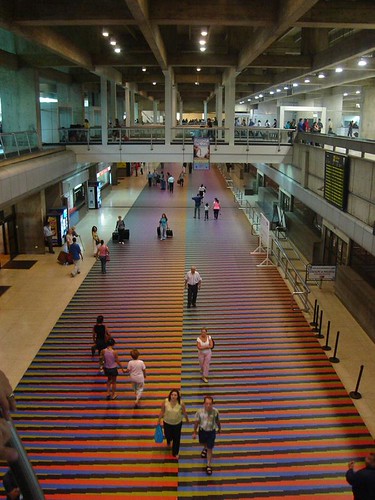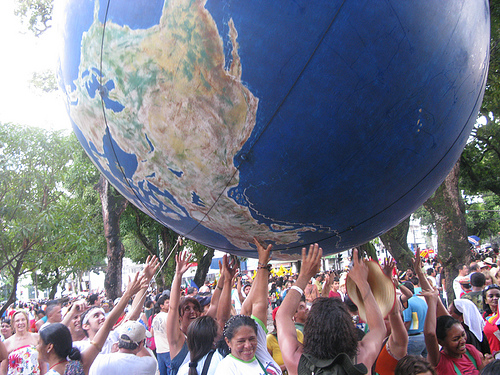
The arepa is truly a food without borders. Though it is emblematic of Venezuela, the savory cornmeal snack has a presence abroad, too! Here are some suggestions for where to find arepas in the U.S.:
In New York, the Caracas Arepa Bar (pictured above) is located on 7th St. the East Village. Here, rumor has it you are nearly required to to try Venezuelan-style guacamole, called guasacaca. Rivals El Cocotero are over on West 18th St.
Lucky for folks in Boston, the up-and-coming Orinoco has two locations, one in the South End and another in Brookline. They have a nice date-worthy ambiance and also sell t-shirts with funny slogans like “arepa boy” and “no se aceptan sifrinos!” (no snobs allowed!).
This may not be the policy at Coupa Cafe in Beverley Hills and Palo Alto, which claims to sell “the finest mountain grown single estate coffees from Venezuela.” It has an entire section of its menu dedicated to gourmet arepas.
Surely Miami is home to the highest density of Venezuelan eateries, but we recommend you try this one first: Caballo Viejo (named for a famous folkloric song by Simon Diaz ) has been described as a “hole-in-the-wall” and a “mom and pop” restaurant that is clean and simple.
Where else do you like to eat arepas? Let us know in the comments section.








